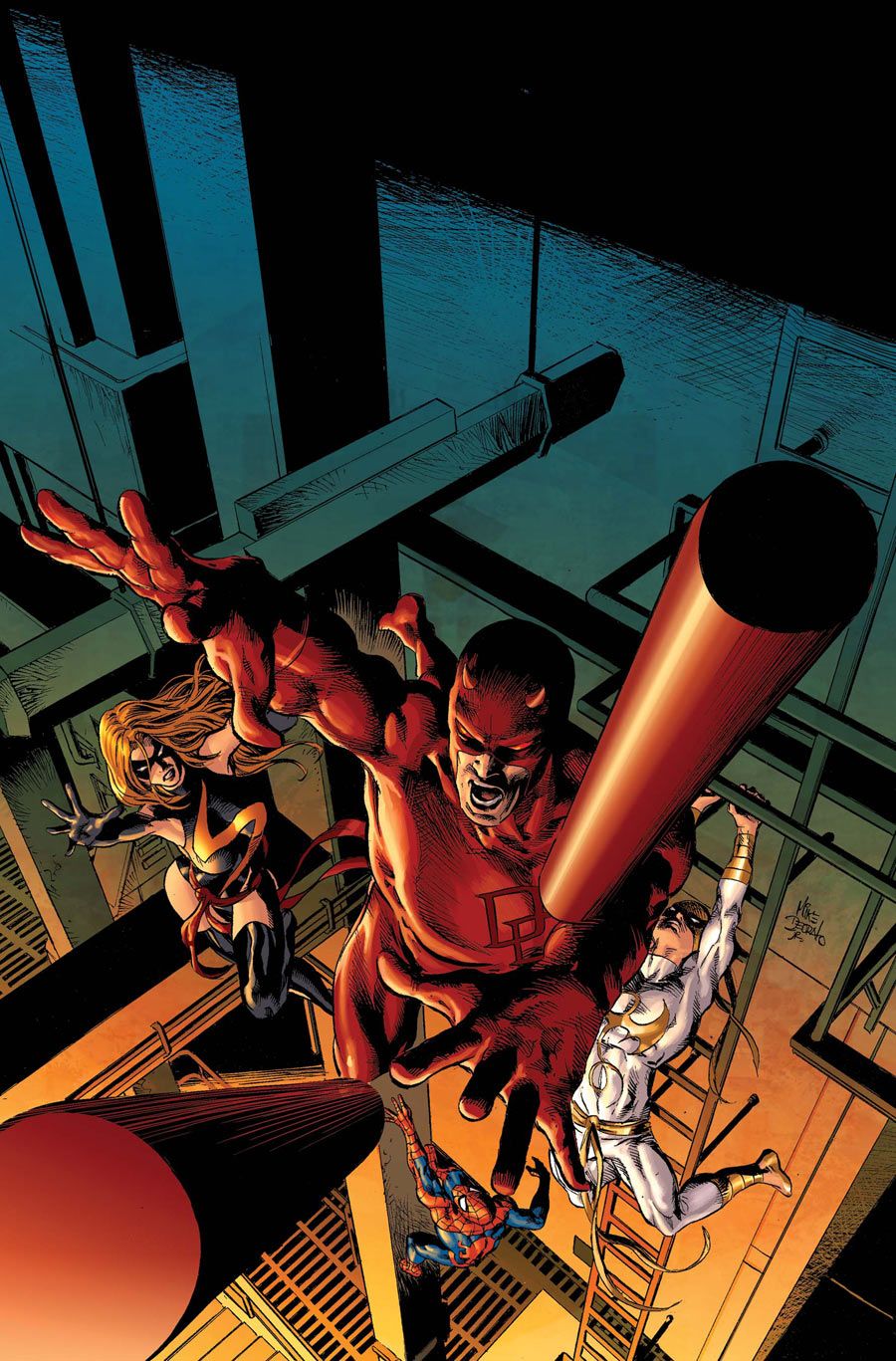"Daredevil joins the New Avengers." That's the selling point of this issue and the story that's told. And, yet, that also seems like the dullest part of the issue. People join and leave the Avengers so often that it's hard to get too excited or worked up over a new or departing member anymore. Readers do, though. If you saw any of the previews for this issue in the back of Marvel comics from the week of August 31st, you'd know that it begins with a thinly veiled shot at all of the readers who have complained since Brian Michael Bendis took over the franchise and populated it with characters like Luke Cage, Wolverine, and Spider-Man. You know, not 'real' Avengers, a category that, no doubt, Daredevil falls under to some.
Within the context of those opening pages, much of this issue is overshadowed by that debate, whether intentional or not. What makes someone an Avenger? They're on the Avengers! It's an argument that's completely true, but feels wrong somehow to longtime readers. Looking at the descriptors for various Avengers provided on those opening pages, it's clear that the Avengers has always been a 'take all comers and see what happens' sort of team; more than that, it's been a place for people to get a chance to redeem themselves, something that plays heavily into Daredevil's reemergence post-"Shadowland."
Picking up where last issue left off with Squirrel Girl and baby Danielle locked in the mansion as Sin's Nazi robots lay waste to the city, Bendis crafts a solid reason for why Luke Cage would ask Daredevil to join the team. Driven by action scenes of Daredevil fighting against the human-piloted robots, it's a somewhat slight affair on the whole. While the reason for Luke to recruit Daredevil makes sense, how the plot gets there seems more like it was crafted with that end goal in mind rather than a logical progression of Daredevil doing something to prove himself and, then, Luke recruiting him.
Part of what makes the issue feel so slight is the pacing, with the action sequences often drawn as a double page splash with "The Oral History of the Avengers" narration/talk panels layered over top. For a comic that's largely driven by Daredevil fighting the Nazi robots, there isn't a lot of that happening. Instead, there are a lot of large shots that don't take advantage of Daredevil's quick-moving acrobatics. The character comes off fairly static throughout.
What both Bendis and Mike Deodato do right is building up Daredevil. In the face of a large, overpowering enemy force, he comes through like the veteran hero that he is. That alone sells the idea that he's Avengers material. When Luke Cage calls him "...one of the best. Ever," early in the issue, what follows makes sure those words are believable.
"New Avengers" #16 has a very straight forward and obvious reason behind it: put Daredevil on the team. It accomplishes that, partly by selling the reader on the greatness of the character. Ultimately, it's a comic that seems more like a means to an end than an organic story.

